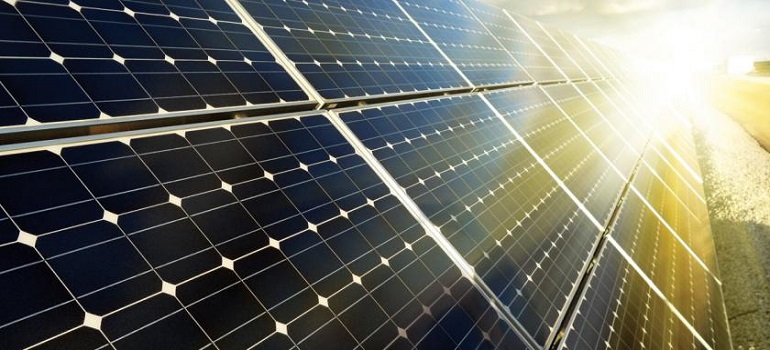
Because of imposition of basic custom duty on equipment, solar power tariffs may rise in near term ,though they would remain cost competitive for the off-takers, ICRA Ratings said on Wednesday.
ICRA”s outlook for renewable energy (RE) sector is ”Stable” because of factors such as continued policy support from the Government of India, large growth potential, the presence of creditworthy central nodal agencies as intermediary procurers and tariff competitiveness, ICRA Ratings said in a statement.
Despite the expected increase in solar power tariffs due to the impact of BCD (basic custom duty), the tariffs are expected to remain below Rs 3 per unit and cost competitive, from the off-takers perspective.
Further, it said that the resolution of pending tariff issue for the renewable projects in the state of Andhra Pradesh remains a key monitorable.
ICRA Ratings has said that policy support and tariff competitiveness factors are likely to continue driving investments in the renewable energy (RE) sector.
On the flip side, the delays in signing of the power purchase agreements (PPAs) and power sale agreements (PSAs) are a key downside risk, it added.
The Covid-19 pandemic induced lockdown restrictions had slowed down the RE capacity addition during the initial months of FY2021. Nonetheless, the capacity addition picked up from October 2020, driven by the easing of lockdown restrictions and supply chain challenges, it added.
The sector added 5.9 GW in 11M FY2021 (April 2020 to February 2021), which is expected to increase to 7.5 GW to 8.0 GW by March 2021. The solar power segment remains the key driver of capacity addition in the RE sector and has surpassed the wind power capacity for the first time in January 2021, it stated.
Girishkumar Kadam, Co-Group Head, ICRA ratings, said, “Favourable factors like policy support and tariff competitiveness are likely to attract investments in the RE sector.”
Given the expected increase in solar tariff rates amid the imposition of basic customs duty (BCD) on imported solar PV cells and modules, the key downside risk for the sector in the near term arises from the risk of delays in signing of the PPAs/PSAs, Kadam said.
“About 20 GW capacity tendered by the central intermediate procurers such as the Solar Energy Corporation of India Limited (SECI) and NTPC Ltd is yet to tie up PPAs/PSAs,” he added.
The credit profile of operational RE projects having exposure to state distribution utilities (discoms) remains constrained by the delays in payments, with the overall dues from discoms to RE IPPs (independent power producers) increased by 39 per cent to Rs 121.4 billion (Rs 12,140 crore) as of January 2021 from Rs 87.6 billion (Rs 8,760 crore) as of March 2020, as per the data from the PRAAPTI portal, it added.
